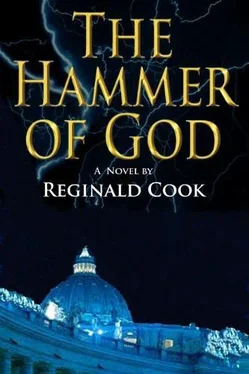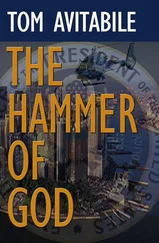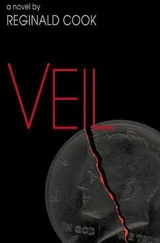Reginald Cook - The Hammer of God
Здесь есть возможность читать онлайн «Reginald Cook - The Hammer of God» весь текст электронной книги совершенно бесплатно (целиком полную версию без сокращений). В некоторых случаях можно слушать аудио, скачать через торрент в формате fb2 и присутствует краткое содержание. Жанр: Триллер, на английском языке. Описание произведения, (предисловие) а так же отзывы посетителей доступны на портале библиотеки ЛибКат.
- Название:The Hammer of God
- Автор:
- Жанр:
- Год:неизвестен
- ISBN:нет данных
- Рейтинг книги:5 / 5. Голосов: 1
-
Избранное:Добавить в избранное
- Отзывы:
-
Ваша оценка:
- 100
- 1
- 2
- 3
- 4
- 5
The Hammer of God: краткое содержание, описание и аннотация
Предлагаем к чтению аннотацию, описание, краткое содержание или предисловие (зависит от того, что написал сам автор книги «The Hammer of God»). Если вы не нашли необходимую информацию о книге — напишите в комментариях, мы постараемся отыскать её.
The Hammer of God — читать онлайн бесплатно полную книгу (весь текст) целиком
Ниже представлен текст книги, разбитый по страницам. Система сохранения места последней прочитанной страницы, позволяет с удобством читать онлайн бесплатно книгу «The Hammer of God», без необходимости каждый раз заново искать на чём Вы остановились. Поставьте закладку, и сможете в любой момент перейти на страницу, на которой закончили чтение.
Интервал:
Закладка:
Fortunately, Father Tolbert’s living quarters were near empty, with most of the men living there at a special presentation at the Vatican Museum. Those who did hear it had probably dismissed it as something other than gunfire, because nobody came running or asked any questions.
Father Ortega quickly snatched up the gun and slipped it in his pocket. Cardinal Polletto removed the bullet from the wall with a knife and told Father Ortega to repair the wall himself. Father Ortega slapped Father Tolbert into a barely lucid state, then pulled him to his feet.
Cardinal Polletto followed them to the car.
“Take him to Bracciano Castle until further notice. Sedate him,” the cardinal ordered. “Keep him under until I arrive.” Everyone sat quietly as the ten cardinals, who were members of the CDF, Cardinal Angelo Ottaviani, and to Cardinal Polletto’s dismay, Cardinal Maximilian, all took their seats up front behind a long sixteenth century gothic table on a riser above them.
Cardinal Polletto eased back in his chair and soaked in the scene, sizing up each cleric in the room. Ten bishops, five archbishops, and five additional cardinals had been ordered to Rome. Most of the bishops invited were executive committee members of the National Bishops Organizational Committee (NBOC) from the United States, who had recently adopted a policy recommending expulsion for any priest who molested a child. The policy was non-binding, without the approval of the Vatican, and the discussion and debate that was about to take place was the beginning of a process that would take years to complete.
The cardinals attending included Cardinals Polletto and Maximilian from the United States, Cardinal E’Tienne Rousseau from France, Cardinal Abubakar Osagiobare from Nigeria, and Cardinal Niklas Bauer from Germany.
Cardinal Polletto hadn’t laid eyes on the men who ran the CDF, now glaring down at them from the stage, in more than a year. Five of them were over the age of eighty, past the limit set by the Church to participate in a vote for a new Pope should the need arise, but every bit the influential force in Rome, with direct contact to the ear of those who mattered most at the Holy See.
When everyone was in place, Cardinal Angelo Ottaviani rose and thanked them for coming on such short notice, extended warm regards from the Holy Bishop of Rome, and turned the meeting over to Cardinal Maximilian. Cardinal Maximilian’s piercing brown eyes softened as he stood, his face a pallet of sincerity. He asked everyone to stand and opened the meeting with a prayer. Cardinal Polletto let the corners of his mouth upturn slightly.
When he finished, Cardinal Maximilian remained standing as everyone else took their seats, and gave a brief summary of why they were assembled, as though common knowledge had slipped their ears.
“The credibility of the Church has taken a severe global beating,” said Cardinal Maximilian. “I believe the edict passed by the NBOC is just the beginning. We should encourage a more thorough background investigation for all candidates of the priesthood, and close psychological analysis and treatment for any offender under our roof.” A buzz reverberated throughout the room, and several hands rose into the air.
Cardinal Maximilian pointed to a hand on the front row. “Bishop Wilmington.”
Bishop Curtis Wilmington, studious, wise for his age, and overseer of the diocese in Dallas stood. “Thank you, Cardinal Maximilian. I wonder if adopting such an immediate, harsh policy is in concert with the Holy Scriptures.”
“Certainly you’re aware that the scriptures speak against such abominations as harming children,” responded Cardinal Rousseau. “The Church can’t be seen as condoning such behavior.” Amused, Cardinal Polletto bit his tongue, not wanting to chime in too early. Since initiating and carefully nurturing the public exposure of one of the Church’s age old skeletons, priests and young boys, he’d found that the mire of debate and confrontation deepened if he just kept quiet and nudged it along at the opportune time.
“The Bible also speaks of forgiveness,” added Bishop Timothy Rogers of Philadelphia. “If second chances apply to parishioners, then why not to those who serve them?”
“Not to mention that canon law doesn’t allow for the random expulsion of priests,” droned Cardinal Bauer, in a heavy German accent.
“For that, new laws must be structured, carefully studied and passed.
Laws that will apply to the entire Church, not just our brethren in the States.”
The murmuring and loud whispering swelled. Cardinal Maximilian, gentle but firm, asked for quiet, which slowly returned. “I understand the need to maintain consistency in the Church precepts, but we can’t ignore the sexual violation of children.”
“We understand,” responded Cardinal Osagiobare, his baritone voice and distinct African accent booming, “but many sins plague us from hell.
How does this outrank other pressing issues, such as homosexuality?
Surely, one sin does not outrank another.” Again, Cardinal Polletto smiled inside. He knew that Cardinal Osagiobare spoke of a faction of homosexual priests who called themselves Saint Sebastian’s Angels. Initially formed in the States, their numbers had grown substantially outside the U.S. in recent years.
“Maybe the strategy should lean more toward temporary censure, than outright expulsion? At least until we get a better handle on how to proceed,” Cardinal Polletto finally said.
“What do you mean?” asked the rotund African cleric.
“Instead of expulsion, they could be reassigned. Not allowed to preside over mass or serve in any capacity where children will be at risk.”
“That’s not new,” shot Cardinal Maximilian. “It’s been tried by many of the parishes. It makes us look as though we’re trying to hide the problem. Sweep it under the rug.”
“Exactly,” chimed Cardinal Rousseau. “We’ve tried psychological counseling, long leaves of absence, spent millions of dollars with very little success. We have to take more drastic measures.” The room percolated and buzzed, as the men argued amongst themselves.
“Quiet, gentlemen, please,” begged Cardinal Maximilian.
“And just how will we confirm every accusation?” added Cardinal Polletto, as the noise died down. “Surely, you’ll launch a full investigation into each incident before stripping a priest of his duties. Or should we just hunt them down and burn them at the stake?” Cardinal Polletto’s heavy-handed remark sent tension washing across the room like a tidal wave. Some stood, snapping at him face to face.
Others rushed to his side and fervently argued in his defense. Beautiful.
Cardinal Maximilian banged his fist on the table and begged them to stay calm. “Your enthusiastic support of the brethren is noted,” he said, behind suspicious eyes. “Please, share with us the details of how you would handle a wayward priest under your watch,” he said to Cardinal Polletto.
Every head turned toward Cardinal Polletto. He stood, back erect, serious, scanning the room.
“It’s not my intention to insinuate that such a matter is simple,” he responded. “We should immediately censure any priest caught up in strong allegations, where confessions have been garnered or the evidence is obvious and overwhelming. But since canon law doesn’t allow for arbitrary discharge, we should reassign them, assess the case, and determine if the man can be rehabilitated.”
“And how do we handle the financial liability?” asked Cardinal Maximilian. “We’ve already paid millions because of the most egregious offenders. If we don’t put a halt to this soon, it’ll turn into an international money grab.”
“Even more of a reason not to be rash,” answered Cardinal Polletto.
Читать дальшеИнтервал:
Закладка:
Похожие книги на «The Hammer of God»
Представляем Вашему вниманию похожие книги на «The Hammer of God» списком для выбора. Мы отобрали схожую по названию и смыслу литературу в надежде предоставить читателям больше вариантов отыскать новые, интересные, ещё непрочитанные произведения.
Обсуждение, отзывы о книге «The Hammer of God» и просто собственные мнения читателей. Оставьте ваши комментарии, напишите, что Вы думаете о произведении, его смысле или главных героях. Укажите что конкретно понравилось, а что нет, и почему Вы так считаете.












